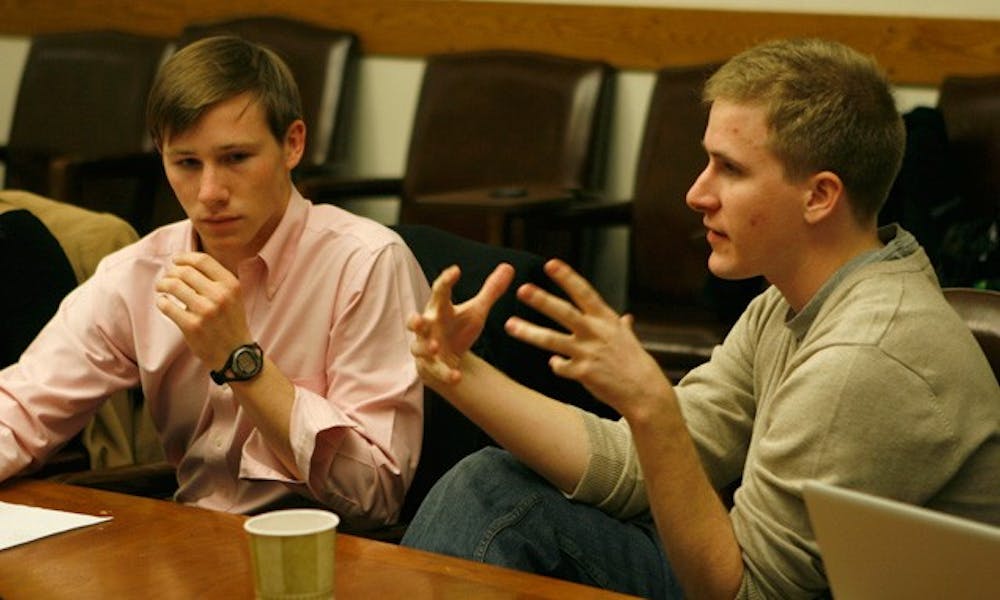Throw a burning couch out of a window and lose points.
Residential Group Assessment Committee points, to be precise.
At a Campus Council meeting Thursday night, members incorporated this and other hypothetical forms of damage into their first discussion of the review of the residential group assessment process. RGAC assesses residential communities—including selective living groups and fraternities—each November.
“We’re trying to get rid of people saying this is completely arbitrary,” said President Stephen Temple, a junior.
To clarify the assessment process, council members defined various levels of damage in terms of student safety and whether the damage makes an object unusable. The group also discussed who should be accountable for the damage.
“I don’t think we should make allowances for the kind of things college kids do when they’re drunk,” said Programming Chair Ben Goldenberg, a sophomore. “I say it’s the group’s fault unless there is an extenuating circumstance and then there should be an evaluation.”
Opinions among members were split between keeping the current system of consequences for individual damage in which groups are not penalized and alternatives where the group takes either a full or lessened charge for all damage.
Traditionally, half of a group’s assessment has been based on “section stewardship,” or a residential group’s overall cleanliness and damage control, and another half has been based on a group’s community interaction. In the version of the process under revision, 60 percent of the score will be based on section stewardship and 40 percent will be based on community interaction.
“The document, frankly, is ambiguous in a lot of places. This is a working document. We’re showing this now to get some feedback,” said RGAC co-Chair John Pryor, a junior. “It’s going to go through so much revision at so many levels.”
Temple said the Interfraternity Council and the Selective House Council, in addition to administrators, must contribute to the revision process before any changes are finalized.
Campus Council did not vote on any changes Thursday night, but Temple said they hope to finalize the process within two weeks.
In other business:
Vice President Alex Reese, a junior, said all applicants to the 2010-2011 Campus Council will be asked to provide the council with a “publicly acceptable resume”—one that would not include GPAs, for instance—to be published online. This is the first time applications will be available for viewing by the general student body.
Reese added that even if a candidate does not wish to have his application published online, his name will still be published.
Get The Chronicle straight to your inbox
Signup for our weekly newsletter. Cancel at any time.

